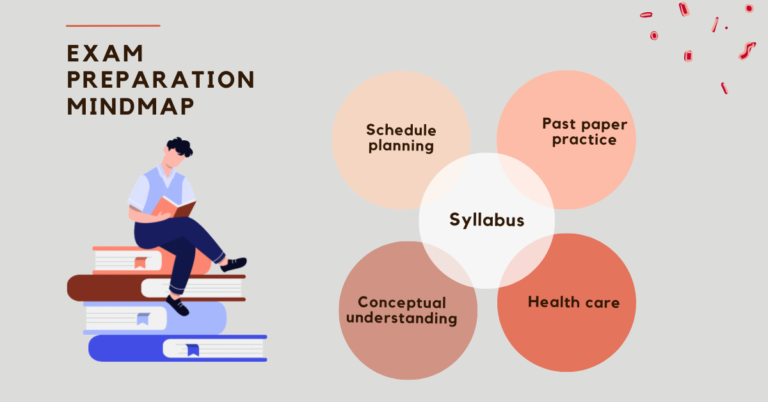Bachelor of Business Management: A Complete Guide for 2025
Introduction


Nepal is gradually emerging as a hub for management education, and the Bachelor of Business Management (BBM) program is leading this transformation. With the rising demand for skilled business professionals in both private and public sectors, BBM is gaining rapid popularity among students after their +2 or equivalent studies. In today’s highly competitive and dynamic job market, simply having a degree is not enough. You need a program that builds leadership skills, offers practical exposure, and prepares you for real-world challenges—and that’s exactly what BBM does.
Unlike other traditional programs, BBM is designed to focus on entrepreneurship, innovation, communication, strategic thinking, and global business understanding. It’s not just about books; it’s about building the future leaders of Nepal’s corporate sector. Whether you’re planning to join a multinational company or start your own venture, BBM lays the perfect foundation for both.
The growing number of colleges offering this program, especially under reputed universities like Tribhuvan University, shows the increasing trust in this degree. So if you’re wondering whether BBM is the right choice for your career, this detailed guide will walk you through everything you need to know—from course details and colleges to future prospects.
What is Bachelor of Business Management (BBM)?
The Bachelor of Business Management (BBM) is a four-year undergraduate degree that equips students with the knowledge and skills needed to manage and lead businesses effectively. Unlike more theoretical business programs, BBM is practical, hands-on, and extremely focused on leadership and management principles.
BBM is typically divided into eight semesters and spans over four years. The curriculum covers a range of core subjects like business economics, marketing, human resource management, accounting, business law, operations management, and entrepreneurship. What sets it apart from similar programs is its focus on real-world management practices and decision-making.
One of the key objectives of BBM is to create mid-level managerial professionals who are capable of leading teams, solving complex business problems, and implementing strategies that drive success. It prepares students to understand the dynamic nature of businesses and adapt quickly to changing environments.
In addition to academics, students are encouraged to participate in seminars, workshops, case studies, group projects, and internships, all of which make them industry-ready. It’s not just about getting a degree—it’s about grooming professionals who can lead, innovate, and succeed.
Importance of BBM Growing Economy
Nepal is at a crucial stage of economic development. With increasing foreign investment, a surge in startup culture, and a growing private sector, the need for competent business managers has never been greater. That’s where BBM graduates come in.
One of the strongest arguments in favor of pursuing a BBM degree is the rapidly growing demand for management professionals. From banks and financial institutions to NGOs, multinational companies, and government organizations—every sector needs individuals who can manage operations efficiently.
Moreover, youth entrepreneurship is rising. Programs like BBM, which emphasize entrepreneurship, are vital for nurturing this new generation of innovators. Many BBM graduates go on to start their own businesses, taking advantage of Nepal’s developing digital and startup ecosystems.
Also, the course content is globally aligned, making it easier for graduates to pursue higher education abroad or compete in international job markets. As Nepal moves forward in global business integration, professionals with a BBM background are likely to play key roles in driving the country’s economic progress.
BBM vs BBA: What’s the Difference?
This is one of the most frequently asked questions by students: “Should I choose BBM or BBA?” At a glance, both seem similar as they deal with business studies, but there are some fundamental differences that you should know.
| Features | BBM | BBA |
|---|---|---|
| Focus | Management & Leadership | General Business Administration |
| Approach | Strategic, Analytical | Operational, Administrative |
| Specializations | HR, Marketing, Banking, Entrepreneurship | Finance, Marketing, HR, IT |
| Nature of Course | Practical & Research-Based | Theory and Basic Business Concepts |
| Best For | Aspiring Managers, Entrepreneurs | Administrative Roles, MBA Aspirants |
BBM tends to be more focused on leadership, critical thinking, and innovation, making it ideal for those who envision themselves in management roles or owning a business someday. BBA, on the other hand, is broader and suitable for those looking for an overview of all business functions.
In Nepal, both degrees are recognized and valuable, but if you’re inclined towards managerial decision-making, leading teams, or launching startups, BBM might just be the better choice.
Course Structure and Curriculum of BBM
The BBM course is designed to ensure a comprehensive understanding of modern business practices. The curriculum is divided across eight semesters and includes both core and elective subjects. The program is offered by several universities, but the most popular structure is provided by Tribhuvan University (TU).
Year-wise Course Breakdown:
First Year:
- English
- Business Mathematics
- Business Economics
- Principles of Management
- Financial Accounting
Second Year:
- Business Communication
- Business Statistics
- Cost and Management Accounting
- Organizational Behavior
- Principles of Marketing
Third Year:
- Fundamentals of HRM
- Business Environment
- Corporate Law
- Entrepreneurship Development
- Elective/Specialization Course I
Fourth Year:
- Strategic Management
- Business Research Methods
- Final Project/Internship
- Elective/Specialization Course II & III
Specialization Areas Include:
- Marketing
- Human Resource Management
- Banking & Finance
- Entrepreneurship & Enterprise Development
The curriculum aims to balance theoretical understanding with practical skills. Students are required to participate in field work, case studies, presentations, group projects, and industrial visits to enhance learning and real-world application. The final year often includes a mandatory internship or project work, giving students first-hand experience in the business environment.
Eligibility Criteria for BBM
To get admitted into a Bachelor of Business Management (BBM) program in Nepal, candidates must meet specific eligibility requirements. These are generally set by the affiliating university, with Tribhuvan University (TU) being the primary provider of the BBM program. While the exact criteria may vary slightly depending on the college or university, the core requirements are quite standard across the board.
General Eligibility Requirements:
- Minimum Academic Qualification: Students must have completed their 10+2 (Higher Secondary Level) or equivalent from a recognized board or institution.
- Minimum Grade: Applicants are typically required to secure at least a ‘C’ grade in all subjects in Class 11 and Class 12 if they come from a GPA-based system or a second division (i.e., 45% or above) if from a marks-based system.
- Entrance Examination: Students must appear for and pass the CMAT (Central Management Admission Test) conducted by Tribhuvan University or the respective university. This test evaluates the student’s proficiency in areas like verbal ability, quantitative aptitude, logical reasoning, and general awareness.
- Interview and Group Discussion (Optional): Some colleges may conduct an interview or group discussion round after the CMAT exam to further assess the communication skills and suitability of the candidate.
Documents Required for Application:
- Mark sheets and character certificates of SEE/SLC and +2 or equivalent
- CMAT admit card and score sheet
- Citizenship certificate (copy)
- Passport-sized photographs
- Application form (provided by the college/university)
Note:
Eligibility may vary for international students. Some universities might also allow A-Level graduates provided their subject combinations align with the management stream.
By meeting these requirements, students can open the door to one of Nepal’s most dynamic undergraduate business programs and pave the way for a future in leadership and entrepreneurship.
Admission Process for BBM Programs
The admission process for BBM is relatively streamlined but competitive due to the program’s increasing popularity and limited seats in reputed colleges. Admission is primarily based on merit, evaluated through academic records and the CMAT entrance exam score.
Step-by-Step Admission Process:
- Online/Offline Application:
- Candidates must first fill out the application form provided by the respective college or university.
- Forms are usually available during July–September for the Fall intake.
- Appear for the CMAT Exam:
- Conducted by Tribhuvan University’s Faculty of Management, the CMAT exam is mandatory.
- It comprises 100 multiple-choice questions divided into four sections: Verbal Ability, Quantitative Techniques, Logical Reasoning, and General Awareness.
- Shortlisting for Interview:
- Based on the CMAT score, colleges shortlist candidates for the next round.
- Some institutions might call for a group discussion (GD) and personal interview (PI).
- Final Selection and Admission:
- Final merit list is prepared by combining scores from the CMAT, academic qualifications, and PI/GD (if applicable).
- Selected candidates are informed via the college website, email, or notice board.
- Upon selection, students must pay the admission fee and submit necessary documents to secure their seat.
Tips to Crack the CMAT Exam:
- Practice aptitude questions daily to build speed and accuracy.
- Stay updated with current events, especially in business and economics.
- Join CMAT preparation classes if needed, which are offered by several institutes in Nepal.
Securing a spot in a reputed BBM program is highly beneficial, and a strong performance in CMAT can significantly increase your chances.
Top Universities and Colleges Offering BBM
There are several reputed universities and colleges offering BBM programs. The most prominent among them is Tribhuvan University (TU), which affiliates many colleges across the country. Other universities have also started to offer BBM or similar business-focused undergraduate programs in recent years.
Top Universities:
- Tribhuvan University (TU)
- Pokhara University
- Purbanchal University
- Mid-Western University
- Kathmandu University (offering similar business programs)
Top TU-Affiliated Colleges for BBM:
- Shanker Dev Campus, Kathmandu
- Nepal Commerce Campus, Minbhawan
- Public Youth Campus, Dhobichour
- Prime College, Naya Bazar
- KIST College, Kamalpokhari
- Ace Institute of Management, New Baneshwor
- Kathford International College, Balkumari
- College of Applied Business, Chabahil
- Texas International College, Mitrapark
- The Times International College, Dillibazar
Key Factors to Consider When Choosing a College:
- Faculty qualifications and teaching quality
- Internship and placement support
- Infrastructure and campus facilities
- Alumni network and industry exposure
- Extracurricular and leadership opportunities
Selecting a college with a strong reputation and industry links can make a big difference in your learning experience and future career prospects.
Fee Structure of BBM Programs
The cost of studying BBM can vary depending on the college, location, and facilities offered. However, being a public university-affiliated program, especially under Tribhuvan University, the fees are generally affordable compared to private or international programs.
General Fee Range (Per Year):
| Type of College | Fee Range (NPR) |
|---|---|
| Government/Constituent Colleges (e.g., Shanker Dev Campus) | NPR 25,000 – 40,000 |
| Private TU-Affiliated Colleges | NPR 80,000 – 150,000 |
| Elite Private Colleges (with modern facilities) | NPR 150,000 – 250,000 |
Total Cost of the Program (4 Years):
- Constituent Colleges: NPR 100,000 – 160,000
- Private Colleges: NPR 350,000 – 800,000+
Other Expenses to Consider:
- Books and materials
- Uniforms and ID cards (if applicable)
- Examination fees
- Laptop and tech gadgets
- Internship travel and project work expenses
Students are advised to carefully compare the facilities, faculty quality, and exposure offered by each institution before making a decision based solely on fees. Sometimes, paying slightly more can offer a far better learning and networking environment.
Specializations Offered in BBM
The BBM program provides specialization options starting from the third or fourth year. These electives help students build deep knowledge and skills in a particular area of interest, aligning their academic path with their career goals.
Popular BBM Specializations :
- Marketing Management
- Focuses on branding, digital marketing, consumer behavior, advertising, and sales strategies.
- Human Resource Management (HRM)
- Covers talent acquisition, performance management, labor laws, employee engagement, and organizational development.
- Banking and Finance
- Emphasizes financial markets, investment analysis, banking operations, and portfolio management.
- Entrepreneurship and Enterprise Development
- Ideal for aspiring business owners; focuses on startup development, innovation, business planning, and venture financing.
Why Specialization Matters:
- Enhances job readiness and credibility in a specific field
- Provides in-depth practical and theoretical training
- Makes you stand out in a competitive job market
- Facilitates smoother transition into master’s programs or MBAs
The specialization choice you make in BBM can shape your career, so it’s essential to choose one based on interest, industry demand, and future prospects.
Career Opportunities After BBM
Graduating with a Bachelor of Business Management (BBM) opens a world of career possibilities across multiple industries in Nepal and beyond. This degree is designed to equip students with practical managerial skills, making them suitable for a wide range of job roles right after graduation.
Popular Career Paths for BBM Graduates:
- Marketing Executive or Manager
- Develop marketing strategies, oversee promotional campaigns, and conduct market research.
- Human Resource Officer
- Handle recruitment, training, employee relations, and performance management.
- Banking and Financial Services
- BBM graduates are highly sought after by commercial banks, development banks, and microfinance institutions as junior officers, credit analysts, or relationship managers.
- Sales Manager
- Oversee sales strategies, lead sales teams, and hit revenue targets.
- Customer Relationship Manager
- Ensure customer satisfaction, manage accounts, and resolve complaints.
- Entrepreneur / Startup Founder
- Launch and manage your own business in any industry—from tech to retail to consulting.
- Business Analyst or Consultant
- Evaluate business operations and recommend strategic improvements.
- Project Coordinator or Manager
- Plan, execute, and manage business projects across sectors such as NGOs, government, and corporate.
- Digital Marketing Executive
- A fast-growing career path for BBM grads interested in online branding, SEO, social media, and content strategy.
Organizations Hiring BBM Graduates:
- Banks (e.g., Nabil, NIC Asia, Sanima)
- Insurance companies
- FMCG companies
- NGOs and INGOs
- Government bodies
- Tech startups and e-commerce platforms
- Business consultancies
Salary Expectations:
- Entry-level: NPR 20,000 – 35,000/month
- Mid-level (3–5 years experience): NPR 40,000 – 70,000/month
- Senior roles (managerial positions): NPR 80,000 – 150,000+/month
Career growth after BBM depends heavily on skills, work experience, and continuous learning, and many graduates go on to pursue an MBA or other postgraduate courses to boost their credentials and move into senior management roles.
Scope of BBM and Abroad
The scope of BBM is not just confined to Nepal—it extends internationally. The global alignment of its curriculum means that students can either pursue higher studies abroad or directly enter the international job market.
Scope in Nepal:
- With Nepal’s economy opening up, there’s a growing demand for skilled managers in areas like banking, tourism, entrepreneurship, e-commerce, and international trade.
- Government bodies and INGOs are also hiring more business graduates for project management and financial analysis roles.
- The country’s startup ecosystem is thriving, offering ample opportunities for innovation and enterprise development.
Scope Abroad:
- BBM is recognized by foreign universities for postgraduate study options, including MBA, MSc in Management, Project Management, Marketing, or International Business.
- Countries like Australia, UK, Canada, and the USA accept BBM graduates for advanced studies or skilled migration pathways.
- Jobs in multinational corporations, global NGOs, and consulting firms are within reach, especially for students with internships or work experience.
Post-BBM Study Options Abroad:
- Master of Business Administration (MBA)
- Master in Finance or Marketing
- Postgraduate Diploma in Management or HR
- Master in International Business or Entrepreneurship
Having a BBM degree puts students in a strong position to pursue global opportunities, provided they supplement it with practical skills and networking.
Internships and Practical Exposure
One of the biggest strengths of the BBM program is its emphasis on internships and practical experience. Unlike some other undergraduate degrees that focus solely on theoretical knowledge, BBM integrates real-world exposure into the curriculum.
Mandatory Internship/Project Work:
- Most BBM programs in Nepal, particularly those under TU, require students to undertake an internship in their final year.
- This could be a 6–8 weeks internship with a corporate house, bank, startup, or NGO.
- Students must also submit a project report or thesis based on their internship experience, evaluated during their final semester.
Benefits of BBM Internships:
- Builds industry connections
- Provides hands-on experience
- Enhances your resume and job prospects
- Helps discover your area of interest
- Develops professional behavior and soft skills
Top Sectors for BBM Internships:
- Commercial Banks and Financial Institutions
- Insurance Companies
- Marketing and Advertising Firms
- Consulting Agencies
- E-commerce Startups
- Hotels and Tourism Companies
Tips to Maximize Internship Benefits:
- Choose an organization relevant to your specialization
- Take initiative and ask to work on real tasks
- Document your work experience for your final project
- Network with mentors and colleagues
- Ask for a recommendation letter upon completion
An internship not only boosts your confidence but also gives you a competitive edge during job interviews and further studies applications.
Skills Developed Through BBM Program
One of the core goals of the BBM program is to help students develop a diverse set of professional, interpersonal, and analytical skills required in the modern business world.
Key Skills Gained:
- Leadership & Team Management
- Learn how to lead teams, manage group projects, and take responsibility.
- Communication & Public Speaking
- Strong focus on written and verbal communication through presentations, reports, and seminars.
- Problem Solving & Decision Making
- Courses like Business Strategy and Management Accounting build this critical skill set.
- Critical Thinking & Analytical Skills
- Data analysis, market research, and project evaluation strengthen logical reasoning.
- Time Management
- Managing multiple assignments, projects, and exams builds organizational skills.
- Digital and Technical Proficiency
- Exposure to tools like Excel, SPSS, Google Workspace, and online business platforms.
- Networking and Interpersonal Skills
- Group discussions, club activities, and internships help you build industry connections.
- Entrepreneurial Mindset
- From ideation to execution, students learn how to build and sustain a business venture.
These skills are not just valuable for getting a job—they are essential for thriving in dynamic business environments and adapting to change, both locally and globally.
Conclusion
The Bachelor of Business Management (BBM) program is more than just a degree—it’s a transformative experience for students who dream of becoming future leaders, entrepreneurs, and innovators. As Nepal continues to evolve into a modern economy, the need for skilled business professionals is growing across all sectors.
BBM equips students with both theoretical knowledge and real-world skills, preparing them to face complex challenges with confidence. Whether your goal is to work in a multinational corporation, launch your own startup, or pursue higher studies abroad, BBM provides the right foundation to achieve it.
With affordable fees, a wide range of specializations, hands-on learning, and growing career opportunities, BBM stands out as one of the best choices for students looking to make a mark in the world of business and management.
FAQs
1. Is BBM better than BBA?
BBM focuses more on management and leadership, while BBA covers broader business aspects. BBM is better for students interested in decision-making roles or entrepreneurship.
2. Can I pursue an MBA after completing BBM?
Yes, BBM is an ideal stepping stone for an MBA. Most MBA programs and abroad accept BBM graduates.
3. What are the job prospects after BBM?
Graduates can work in banking, marketing, HR, finance, consulting, or even launch their own business.
4. Do BBM programs include internships?
Yes, most BBM programs include mandatory internships and project work during the final year.
5. How much does a BBM program cost?
The total cost ranges from NPR 100,000 in government colleges to NPR 800,000+ in private institutions.







